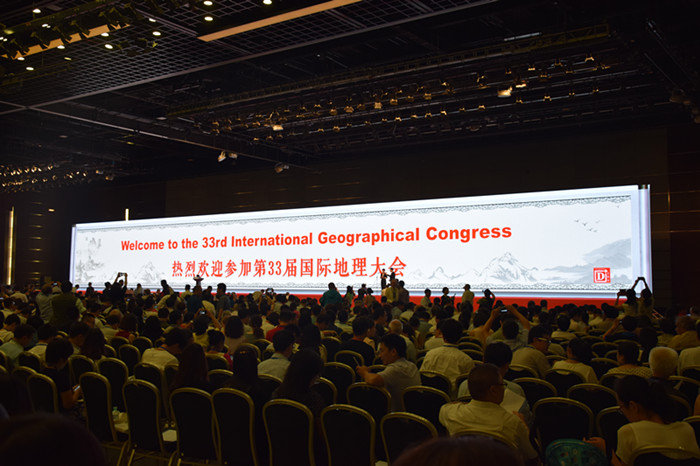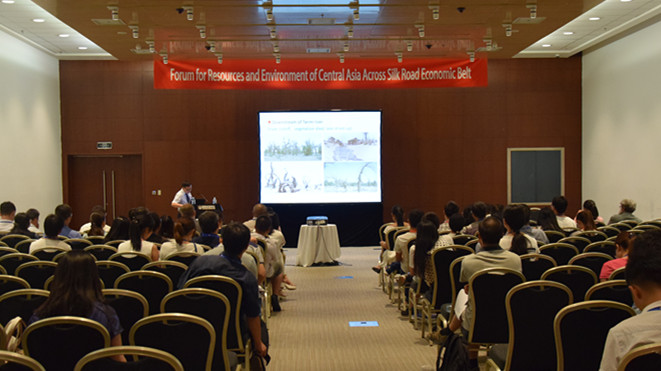
We live on one earth, yet in diversified worlds of natural, economic, social and cultural variety. These diversified worlds are being transformed by globalization, while at the same time they face global climate change and are undergoing profound environmental, economic, social and cultural changes.
Our worlds are facing more and more challenges that come along with development. Natural resources and ecological environment problems are especially serious for countries in Central Asia.
That is what brings international scientists from dozens of countries around the world together for the Forum for Resources and Environment of Central Asia across Silk Road Economic Belt, to find a better solution for sustainable development in Central Asia countries.
The forum is a parallel session of the 33rd International Geographical Congress (IGC), which is the first time it has been held in China. Over 5,000 academics from nearly 100 countries and regions have convened in Beijing for the Congress last from Aug. 21 to Aug. 25.
The two-day forum provides a platform for scientists to share their views and researches on topics like the Silk Road Economic Band and regional development of Central Asia, climate change and environment evolution, human activities and environment change, hydrology and water resources processing, capacity of resources and environment, ecological environment change in Central Asia, natural hazard monitoring pre-assessment especially the emergency response and restoration and reconstruction after the hazard, resource and environment survey and monitoring along the Silk Road, response and adaptation of ecological system and biodiversity to climate change in Central Asia.
Sitting at the junction point of the Silk Road Economic Band, Xinjiang is playing a better and better role as not only a traffic hub and commercial logistics center, but a scientific and educational center.
“Construction of the CAS Research Center for Ecology and Environment of Central Asia has brought a bunch of transnational S&T cooperation on natural resources exploitation, ecological environment protection, and earth observation information technology, which help accelerate the development of countries along the Silk Road,” said CHEN Xi, director of the Xinjiang Institute of Ecology and Geography (XIEG).
As one of the organizers of the forum, XIEG has been leading the researches on regional geography, resources and ecological environment in Central Asia. The establishment of overseas research bases and platforms under the Research Center for Ecology and Environment of Central Asia will provide a scientific impetus for the construction of the Silk Road Economic Band, according to CHEN.
The 33rd IGC, with the theme of "Shaping our Harmonious Worlds", was designed to advocate harmony between mankind and nature, and respect for cultural differences. The congress has convened every four years since it was first held in Antwerp, Belgium, in 1871.

The 33rd International Geographical Congress (Image by XIEG)

Forum for Resources and Environment of Central Asia across Silk Road Economic Belt (Image by XIEG)

86-10-68597521 (day)
86-10-68597289 (night)

52 Sanlihe Rd., Xicheng District,
Beijing, China (100864)

